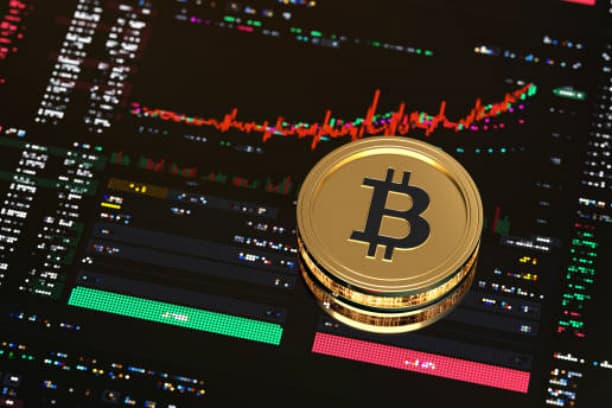Bitcoin Ransomware Scam: What to Do If You Receive a Hacker's Email Extortion?
In this digital age, hacking and ransomware have become commonplace in cybercrime. Recently, some hackers have been using Bitcoin as a ransom tool, sending threatening emails to unspecified victims in an attempt to scare people into paying Bitcoin with false information. These ransomware scams are not only anxiety-provoking, but they can also lead you to fall into a trap without even realizing it. Today, we're going to take a closer look at what you can do if you receive a ransom email from a hacker to calmly respond and protect yourself from unnecessary losses.

How the Bitcoin Ransomware Scam Works
Bitcoin ransomware scams are usually carried out through emails that threaten to release certain sensitive information or cause further damage if the recipient does not pay a certain amount of Bitcoin. Common techniques used in these ransom emails include forging personal information, threatening to release private photos or files, or claiming to have compromised the victim's equipment. Often, these threats are unsubstantiated and are simply attempts at psychological warfare to force the victim to pay.
How hackers choose their targets
Rather than targeting a specific person, hackers usually send out a random mass of ransom emails, utilizing internet scanning tools to obtain email addresses. The content of these emails is often highly generic and simply replaced with the recipient's name or some personal information to increase credibility. Many victims mistakenly believe that they have been specifically targeted by hackers, which in turn puts them in fear of the threat.
Purpose and Motivation behind Blackmail
The real goal of these scams is not to actually leak information, but to force people to pay for Bitcoin through intimidation. Due to the anonymity of Bitcoin transactions, hackers can easily hide their identities, which makes their behavior even more dangerous. Most victims do not receive anything in return for their Bitcoin payment, and even after making the payment, they continue to be subjected to more ransom demands.
How to Recognize Bitcoin Ransom Emails as Real or Fake
Recognizing the authenticity of such ransom emails is crucial because if you get too anxious and pay directly, you may put yourself in deeper trouble. Here are some common ways to recognize ransom emails, which can help you to distinguish the authenticity of ransom emails.
Check the sender of the e-mail
Check that the address from which the email is being sent is from an official source. Ransom emails often use email addresses that look normal but are actually flawed. For example, the domain name of the email may be similar to the domain name of a legitimate company, but with minor spelling errors. These small details can often reveal the falseness of an email.
Logic of threat content
If the content of the email is too exaggerated or the threat is too extreme, then it's probably a scam. For example, a hacker claiming to have taken private photos of you and threatening to release them is usually unfounded. Thinking carefully about whether the threat is reasonable will usually help you to recognize these scams.
Check language and format
Scammers will often use misspelled, ungrammatical language to minimize the cost of spoofed mail. These poor language and formatting differences can help you recognize a fraudulent email. Legitimate companies or hacker organizations usually put a lot of effort into the content and formatting of their emails, but in the event of a mistake, these details become the key to recognition.
How to deal with ransom emails
After you've determined that you've received a Bitcoin ransomware email, the most important thing you can do is remain calm. Here are a few steps you should take.
Don't rush to pay any Bitcoin
Don't transfer Bitcoin or any form of money to the hacker's account in the first place. Not only will this probably not solve the problem, it will embolden the hacker to threaten to blackmail you even further. What's more, the funds are often untraceable after payment, which will allow the hacker to gain even more.

Screenshot to preserve evidence
Take note of all the evidence, including the content of the email, attachments (if any), the time of delivery, and the Bitcoin address requested by the hacker. This information will be very helpful for future police reports and prevention. If sufficient evidence is provided, the police may be able to track and handle such cases more effectively.
Contacting Professional Organizations
If you have any concerns, you should report them immediately to the appropriate organization. You can contact your local cyber security agency, the government anti-fraud hotline, or your Internet service provider. These organizations will have specialized measures in place to help you deal with the matter and will be able to provide further security advice.
How to Protect Yourself from Bitcoin Ransomware Virus
Internet security measures are essential in order to avoid being exposed to the Bitcoin ransomware virus. Here are some practical tips to help you strengthen your security and reduce your risk.
Regular system and software updates
Whether it's your operating system or an application, you should have regular security updates. This will prevent hackers from exploiting vulnerabilities to break into your device. Most updates will patch known security vulnerabilities and reduce your chances of being attacked by ransomware.
Installation of anti-virus software and firewall
Using antivirus software and keeping it up-to-date can effectively identify and block most ransomware viruses. Firewalls can also help filter suspicious network traffic and prevent attacks from unknown sources.
Handle unfamiliar emails and attachments with care
Don't open emails or attachments from unknown sources. Hackers often hide ransomware viruses in attachments that start running on your device when you open them. Even if the sender of an email seems trustworthy, check it carefully.
Frequently Asked Questions Q&A
1. If I pay in Bitcoins, can I stop the extortion?
Not necessarily. After making the payment, the hackers may not fulfill their promise and may even continue to blackmail you. Therefore, paying Bitcoin is not an effective way to solve the problem.
2. How do I know if my device is infected with ransomware?
Usually, ransomware encrypts your files and demands a ransom to decrypt them. If your files cannot be opened or display abnormally, you may be infected with a ransomware virus.
3. If I receive a ransom email, should I report it to the police?
Yes, you should call the police and contact a professional cyber security organization. They will be able to provide professional assistance and may be able to help trace the hacker's whereabouts.
Through this article, I hope to give you a better understanding of the Bitcoin ransomware scam and learn how to deal with it and prevent it. Remember, calmness and vigilance are the keys to dealing with cyber security threats!














